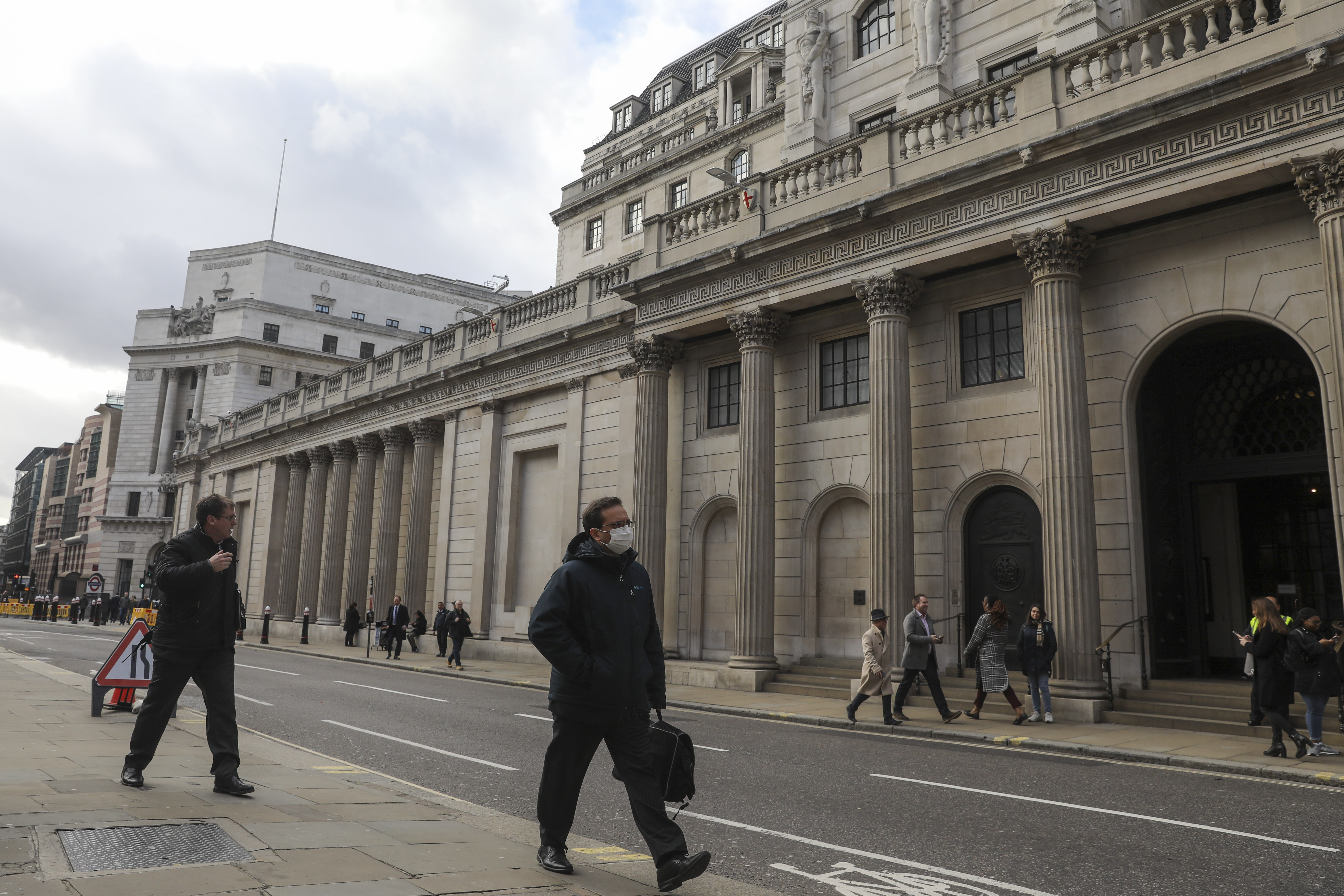Coronavirus: what the Bank of England can do
Economic disruption looking more serious by the day, but interest rates are already very low


A free daily email with the biggest news stories of the day – and the best features from TheWeek.com
You are now subscribed
Your newsletter sign-up was successful
The Bank of England is facing questions over its plans to soften the blow of coronavirus in the UK as concerns over its economic impact grows.
The coronavirus continues spreading with alarming speed throughout the world, and central banks and monetary policy organisations are beginning to mobilise.
On Wednesday, the International Monetary Fund downgraded its growth forecasts, warning the global economy will struggle to match the 2.9% expansion achieved in 2019 and promising $50bn in emergency funding for low income and emerging market countries. A day earlier, the US Federal Reserve announced its first emergency rate cut since the 2008 financial crisis.
The Week
Escape your echo chamber. Get the facts behind the news, plus analysis from multiple perspectives.

Sign up for The Week's Free Newsletters
From our morning news briefing to a weekly Good News Newsletter, get the best of The Week delivered directly to your inbox.
From our morning news briefing to a weekly Good News Newsletter, get the best of The Week delivered directly to your inbox.
The question now is whether and how the BoE will follow suit.
Incoming BoE chief Andrew Bailey warned MPs on Wednesday that, while the coronavirus was “the first most pressing issue that we face”, Threadneedle Street has limited room for a similar move - its key interest rate is already at 0.75%, one of the lowest levels in the bank’s 325-year history.
There was some space to drop rates to 0.1%, said Bailey, but the Bank is not yet close to taking this step. “What we need is more evidence than we have at the moment on exactly how this is feeding through,” he said.
As a result, added Bailey, the central bank and the government would have to move quickly to coordinate “the right mix of policy”, including measures to ensure small and medium-sized businesses can secure emergency loans to cope with potential supply-chain disruption.
A free daily email with the biggest news stories of the day – and the best features from TheWeek.com
“I think it is quite reasonable to expect that we are collectively going to have to provide some form of supply-chain finance,” said Bailey, who is due to take over from Mark Carney as Bank governor on 16 March.
The Financial Times says Bailey believes “that the BoE can still deliver stimulus equivalent to an interest-rate cut of 2.5 percentage points, through a combination of conventional policy, quantitative easing, concessionary funding for commercial banks and guidance to markets on future interest rates”.
–––––––––––––––––––––––––––––––For a round-up of the most important business stories and tips for the week’s best shares - try The Week magazine. Get your first six issues free–––––––––––––––––––––––––––––––
The incoming governor faced harsh questioning during his time in front of the Treasury Committee yesterday as MPs scrutinised his suitability for the role, focusing on what The Guardian calls a “series of scandals on his watch” during his time as head of the Financial Conduct Authority.
Speaking in front of the same committee the day before, outgoing governor Carney echoed these claims, saying the BoE’s role was “to help UK businesses and households manage through an economic shock that could prove large but will ultimately be temporary”.
“We don’t want viable businesses to go out of business because of the very necessary steps that need to be taken to protect and serve the British public,” he said.
In Brussels, concerns are also high, with Bloomberg reporting that European ministers have been warned that “the coronavirus outbreak threatens to plunge both France and Italy into recession, and the ripples from a prolonged outbreak could incite a ‘vicious’ spiral of declining markets”
William Gritten is a London-born, New York-based strategist and writer focusing on politics and international affairs.
